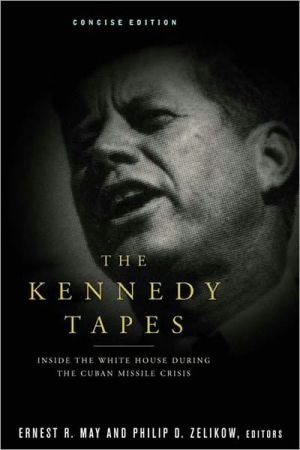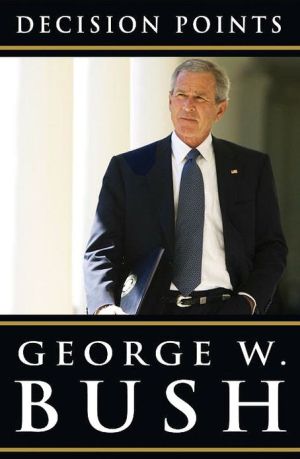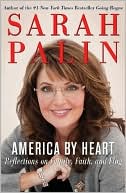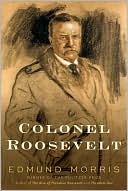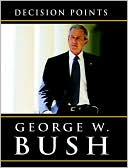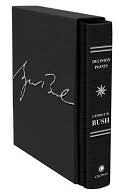The Kennedy Tapes: Inside the White House During the Cuban Missile Crisis
The closest most of us will ever come to being inside the Oval Office at a moment of crisis.\ For sheer drama, this work of history may never be duplicated. The events of the Cuban Missile Crisis unfold in the actual words of President John F. Kennedy and his top advisers. Now available in a new, concise edition, this book retains its gripping sense of history in the making.\ "[A] splendid achievement, as powerful and exciting a book as one is likely to read this year...."—Barry Gewen, New...
Search in google:
The closest most of us will ever come to being inside the Oval Office at a moment of crisis. Richard J. Tofel Gripping history. —Wall Street Journal
Preface to the Concise EditionA Note on SourcesIntroductionTuesday, September 4, 1962312:35 P.M. - Meeting on Soviet Arms Shipments to Cuba34:00 P.M. - Drafting Meeting on the Press Statement95:00 P.M. - Meeting With Congressional Leadership125:55 P.M. - Meeting on the Congressional Resolution16Saturday, September 29, 19622011:00 A.M. - Meeting on the Soviet Union20Tuesday, October 16, 19623011:50 A.M. - Meeting on the Cuban Missile Crisis326:30 P.M. - Meeting on the Cuban Missile Crisis53Thursday, October 18, 19627311:10 A.M. - Meeting on the Cuban Missile Crisis73Near Midnight. Kennedy Summarizes a Late-Night Meeting106Friday, October 19, 19621099:45 A.M. - Meeting with the Joint Chiefs of Staff109Saturday, October 20, 19621242:30 P.M. - National Security Council Meeting125Monday, October 22, 196213810:40 A.M. - Conversation with Dwight Eisenhower14211:00 A.M. - Meeting on Diplomatic Plans14611:47 A.M. - Meeting of Berlin Group1493:00 P.M. - National Security Council Meeting1525:30 P.M. - Meeting with the Congressional Leadership163Tuesday, October 23, 196219410:00 - Executive Committee Meeting of the National Security Council19412:25 P.M. - Conversation with Lucius Clay2023:52 P.M. - Conversation with Roswell Gilpatric2046:00 P.M. - Executive Committee Meeting of the National Security Council2067:10 P.M. - Discussion between President Kennedy and Robert Kennedy218Wednesday, October 24, 196222410:00 A.M. - Executive Committee Meeting of the National Security Council2245:05 P.M. - Meetings with Staff and Congressional Leadership234Thursday, October 25, 196224510:00 A.M. - Executive Committee Meeting of the National Security Council2455:25 P.M. - Executive Committee Meeting of the National Security Council260Friday, October 26, 196226910:10 A.M. - Executive Committee Meeting of the National Security Council26912:00 P.M. - Meeting with Intelligence Officials2884:30 P.M. - Conversation with Dean Rusk2927:31 P.M. - Conversation with Lincoln White295Saturday, October 27, 196230110:05 A.M. - Executive Committee Meeting of the National Security Council3014:00 P.M. - Executive Committee Meeting of the National Security Council3249:00 P.M. - Executive Committee Meeting of the National Security Council391Sunday, October 28, 196240211:05 A.M. - Executive Committee Meeting of the National Security Council40412:08 P.M. - Conversations with Dwight Eisenhower, Harry Truman, and Herbert Hoover405Conclusion411Notes451Index491
\ Barry Gewen[A] splendid achievement, as powerful and exciting a book as one is likely to read this year.... —New York Times Book Review\ \ \ \ \ Hendrik HertzbergRiveting. . . The Kennedy Tapes. . . [is] a suspenseful, self-contained narrative of a single intense episode. . . which in retrospect stands out as the most dangerous moment of the Cold War. -- New Yorker\ \ \ James G. Blight[A]s close as most people will ever get to being a fly on the wall during the discussions of leaders. —Los Angeles Times Sunday Book Review\ \ \ \ \ Richard J. TofelGripping history. —Wall Street Journal\ \ \ \ \ Stephen E. Ambrose[M]esmerizing. I was utterly fascinated....the best, fullest account of crisis yet and will remain so for decades to come.\ \ \ \ \ Bruce Melan[The Kennedy Tapes] is 700 pages of terror and drama.\ —Bruce W. Melan Time\ \ \ \ \ James BakerTo read [The Kennedy Tapes] is to be in the White House in those fateful days of October, 1962…This immediacy is new, and it is endlessly fascinating…The Kennedy Tapes is a must-read, not only for the student of history or international affairs, but for citizens of any country who hold out the hope that the Earth will never face such a crisis again.\ —(James Baker, former Secretary of State Observer (London))\ \ \ \ \ Kim WeinerThe transcripts…capture the power and drama of the moment. They show just how raw things were in the White House. They let readers hear leaders thinking out loud about what to do to force the Soviets to withdraw the missile. The raise ideas about nuclear weapons, political power and civilian control of the military that remain vital today…The tapes show men mulling over a global chess game in which the wrong move kills millions…The words are a record of decision-making in a nuclear crisis that has no equal.\ —Kim Weiner New York Times\ \ \ \ \ Philip SeibThe Kennedy Tapes will fascinate anyone interested in history and anyone interested in how the American government works when its citizens most depend on it.\ —Newsweek\ \ \ \ \ Kirkus ReviewsThe glimpse we get into the making of U.S. policy in a crisis—in this case the Cuban missile crisis—is unique and, in light of the historical and legal problems of the taping of White House conversations by presidents, may well remain so.\ Which is a great pity, for despite the apparently poor quality of the tapes and various unresolved questions relating to them, the picture of U.S officials dealing with the most serious crisis of the Cold War is memorable. Although the editors, both scholars at Harvard, rightly remark on the "inherently disorderly character" of such meetings, the quality of understanding and analysis the participants brought to the task was high. There are some exceptions: The lack of esteem felt by Kennedy for the Joint Chiefs of Staff seems justified by their performance (General LeMay openly equated Kennedy's actions with "the appeasement at Munich"); the congressional group brought in to advise was less than helpful, Senator Fulbright, ironically, calling for an immediate all-out invasion. Kennedy privately chews Secretary Rusk out for failing to do contingency planning on the U.S. missiles in Turkey. But the praise given by the editors to Kennedy seems justified, not only for his clear recognition of the awesome responsibilities of his actions, but for asking questions that his advisors had neglected. The editors write of his "cold analytical mind," and indeed he alone notes that U.S. allies think that on the subject of Cuba "we're slightly demented"; if anything, he tends to be pessimistic ("He'll grab Berlin, of course," he says of Khrushchev). But it is particularly impressive when contrasted with the idiosyncratic, unsystematic, and uninformed policymaking of Khrushchev.\ A remarkable and truly historic record, well analyzed and put in context by May and Zelikow.\ \ \
